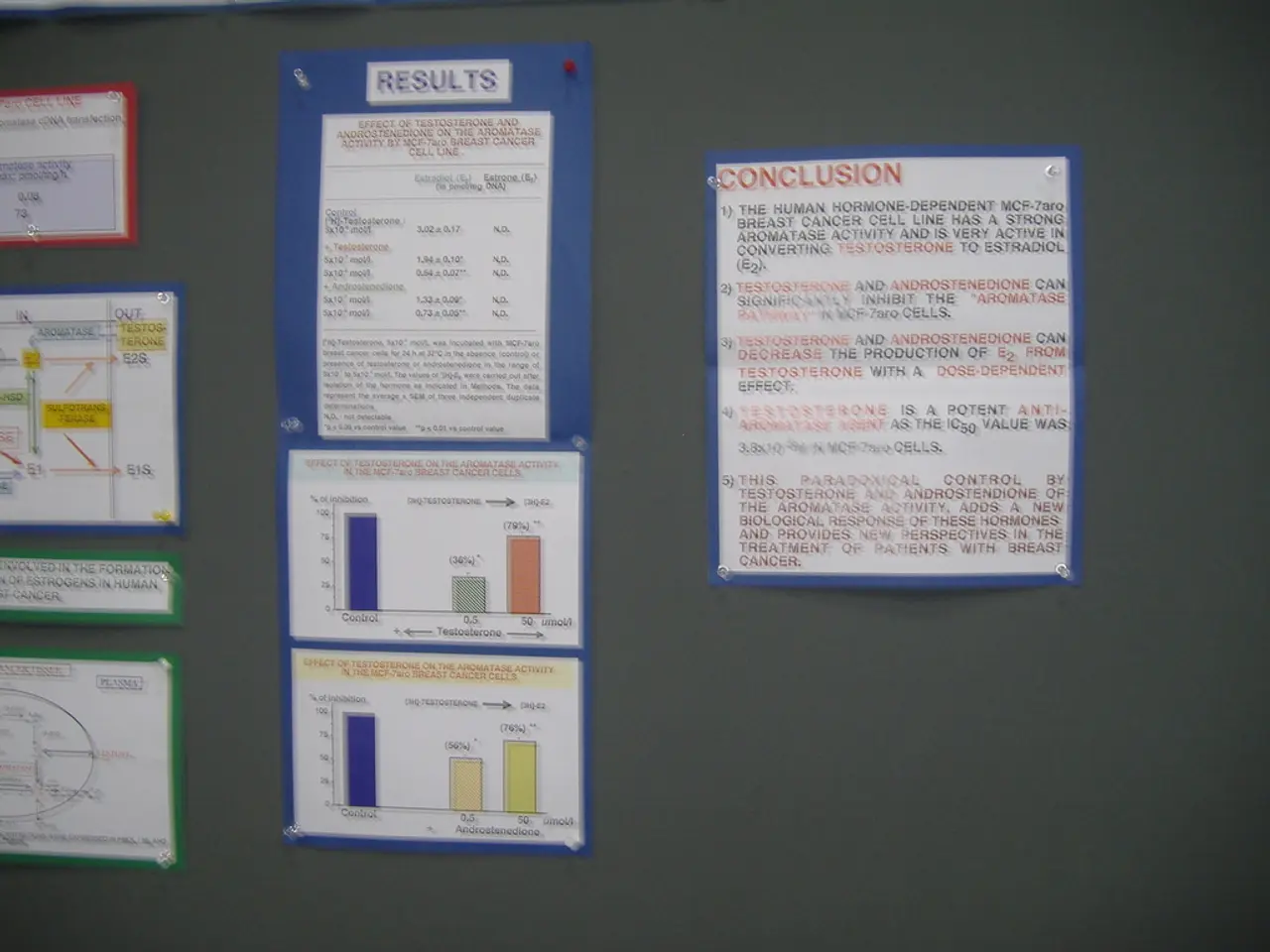- Economy Minister's Comments: Chemistry Plays a Significant Role
In the heart of Germany, the Leuna chemical park, the country's largest closed chemical site, continues to play a significant role in the national economy. This was evident as Federal Minister of Economics Katherina Reiche (CDU) recently visited the site, underscoring the importance of the chemical industry for both Europe and Germany.
The chemical industry contributes approximately 107 billion euros in sales to the German economy in the first half of 2025, serving as a crucial supplier for sectors such as automotive, construction, agriculture, and textiles. However, the industry is currently experiencing a downturn, with production and sales slightly declining and no recovery expected before 2026.
Key challenges for the industry include high energy prices, rising labor costs, global economic weakness, trade tensions and tariffs, and currency effects. The slump is particularly impacting regions like Saxony-Anhalt, where chemical plants form part of the industrial landscape.
Addressing these issues, potential solutions and adaptations discussed include political support and regulatory easing, localization of production, efficiency improvements and energy strategies, and government economic growth stimulus. Reiner Haseloff, the Minister President of Saxony-Anhalt, also stressed the need to avoid dependencies on other countries.
During her visit, Minister Reiche also highlighted the importance of chemistry for industry. The visit included a tour of the UPM biorefinery in Leuna, a new facility that produces chemical substances from wood instead of fossil raw materials. These chemical substances can then be further used by industry, marking a significant step towards sustainability and independence from fossil fuels.
However, not all news is positive. The US chemical company Dow has announced it will close parts of its plants in Bohlen (Saxony) and Schkopau (Saxony-Anhalt) in the coming years. Minister Reiche, however, remains optimistic about discussions with Brussels on the industrial electricity price, promising further relief for the chemical industry.
Over one billion euros are being invested at the Leuna site, making the new biorefinery the largest chemical investment currently underway in Europe. This investment, along with the promised relief measures, indicates a commitment to the industry's recovery and growth.
In summary, the German chemical industry's impact on the economy remains large but is strained by current cost pressures and global uncertainties. Solutions likely involve a combination of political support, strategic localization, cost management, and broader economic recovery measures aimed at restoring demand and competitiveness. The Leuna site, with its significant investments and new sustainable technologies, serves as a beacon of hope for the industry's future.
[1] German Chemical Industry Association (VCI) Report, 2025 [2] Reuters, 2025 [3] Chemie.de, 2025 [4] Bundesbank, 2025 Economic Forecast
- In light of the challenges facing the chemical industry, including high energy prices and global economic weakness, vocational training programs could be incorporated into community policies to cultivate a skilled workforce, promoting efficiency improvements and reducing labor costs.
- As part of the drive towards sustainability and independence from fossil fuels, industry investments in science and technology, such as the UPM biorefinery in Leuna, could facilitate the development of new, eco-friendly chemical products, boosting the nation's finance sector and potentially reducing trade tensions with importing countries.




